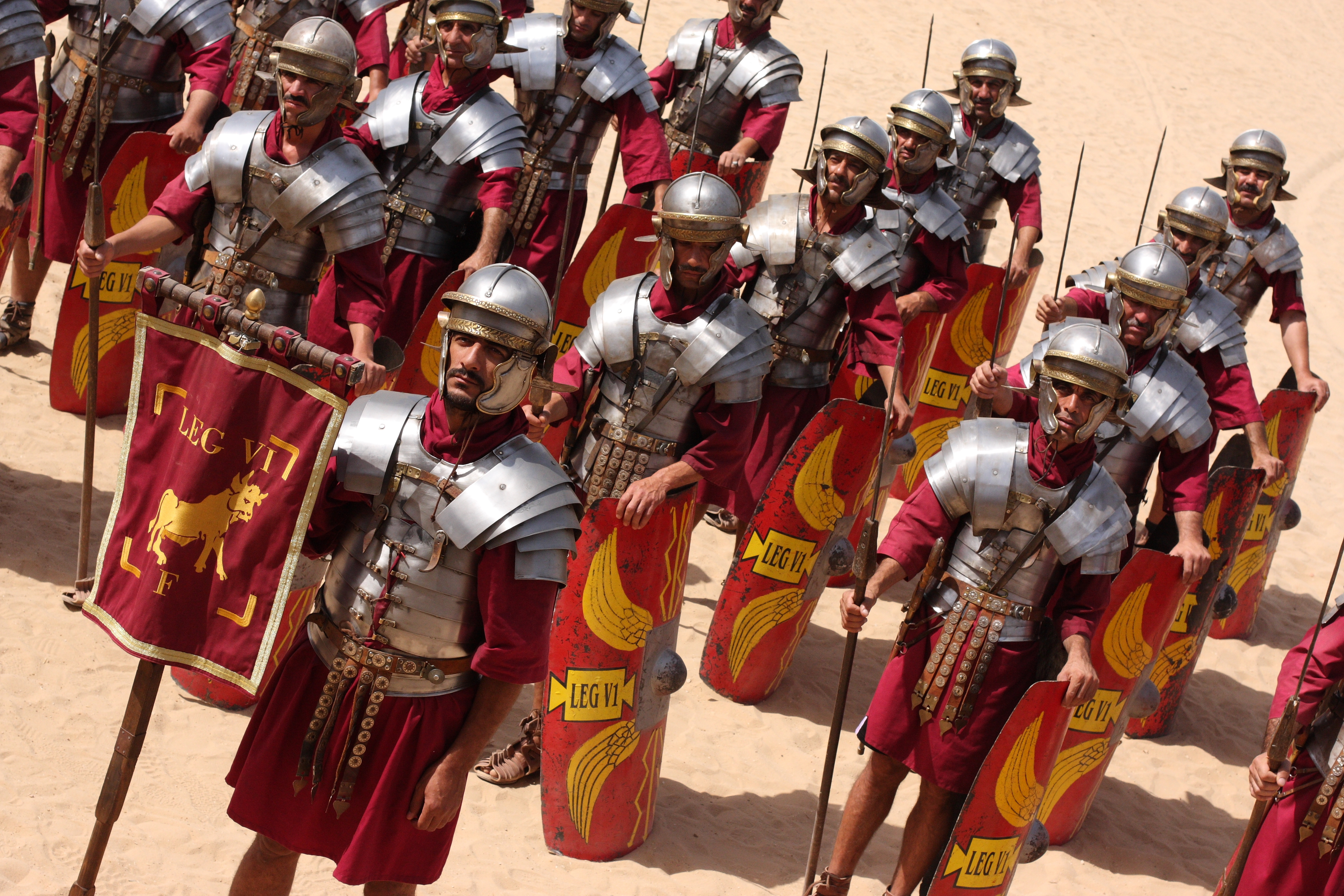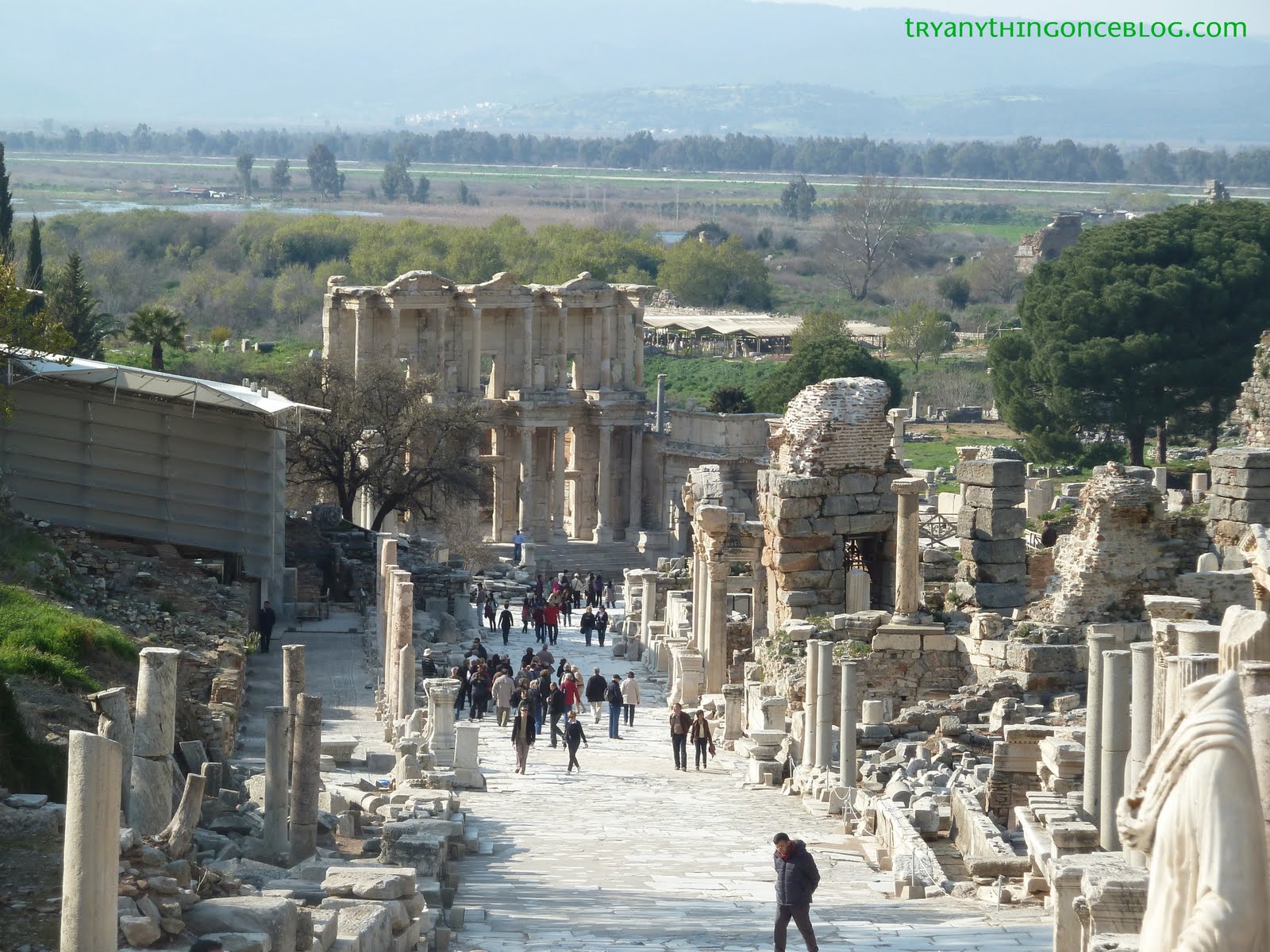 Are you concerned about people who TEXT when they drive? Have you ever found yourself focused on something other than the road ahead WHILE you were driving? In this lesson, we want to look at the road ahead, and we want that road to have our full attention – undistracted.
Are you concerned about people who TEXT when they drive? Have you ever found yourself focused on something other than the road ahead WHILE you were driving? In this lesson, we want to look at the road ahead, and we want that road to have our full attention – undistracted.
If you are involved in training young people in the church, these are exciting days to live in! I believe a new wind is blowing in the church of the west, and God is raising up young people who are preparing to take a firm commitment to Jesus Christ into a world where even western culture has grown hostile to its historic roots. These young ones are not giving up, and we mustn’t give up on them. In the coming days you will see they are not moving into the world unarmed – but with the Spirit of God, a commitment to the Word of God and a renewed grasp of the scope of the battle they are pressing outward. The fog is lifting!
It appears many of us inadvertently allowed culture to slide into moral morass while our churches were distracted by side issues. Some churches worried about hymnals and drum sets while the world removed the “stigma of divorce” and redefined “sexuality and marriage” right under our noses. While the church thoughtfully attempted to preach a more relevant message blending Scripture with psychology and self-affirmation (in many cases trading Scripture to do so), the world redefined the story of the origin of the cosmos as a random and meaningless adventure going nowhere. Now, many of us are increasingly pleased to see a new and dynamic generation of young people who seem to see more clearly. We are approaching a new day, should the Lord permit – a time to send out God-loving, Word-grasping, Spirit-dependent youth is coming close. God isn’t done yet, and we mustn’t become weary in well doing.
Key Principle: The road ahead has obstacles that cause some to falter, but a focus on our incredible Savior and His purposes will keep us moving toward our goal.
More than any other fight we may be engaged in today – our culture is fighting for its future; and it is a fight worth waging. Our “ships of state” appear heavy-laden with prophets of self-satisfaction, preaching “Do what feels good” to the masses. The infection has taken hold throughout our morally drifting university system, and has followed the blood lines all the way into the hallowed halls of our own national Congress. As a people, we seem to be making one decision after another without regard to the long-term future of our people. Here is the problem: Self-centered people think of their own satisfaction long before they carefully consider the impact of any decision on the generations who follow them.
There are observable symptoms to this problem. Such a culture will casually borrow the resources not yet earned to fund their current pleasures, loading a heavy debt on their children without much apparent concern. They consume natural resources at alarming rates without sufficient regard for how their children will make due. They make moral decisions based on what will satiate any immediate desires (no matter how destructive in the long term), without careful consideration of how their actions will harm the generations behind them. In truth, they are less interested in the “one day” than the “now”. If we carefully examine it, at the center of “selfishness” is a false urgency for complete and immediate happiness at the expense of all other values. Is there any doubt we are watching selfishness become a virtue in our day? No, but we are deliberate in our push back against it.
One thing you should be aware of – the struggle is not new to us, nor the strategy to wage war against it. The enemy has few new strategies, but replays the old – over and over. More than anything else, mature believers are called to deliberately work to leave behind those who are seeking to follow Jesus and lead others to Him no matter their social climate or culture. If that doesn’t happen our movement is finished here, no matter how big our buildings or famous our leaders – Christianity will die in our land – and God will raise it up in another place.
The Apostle Paul was well versed in that truth, and in our last lesson, we explored touch points of his mentoring and discipleship from the opening chapter of Colossians – particularly the spiritual form of growing people in Christ to spiritual maturity. Let’s remind ourselves of the setting of this essential writing on discipleship… You may recall that we left Paul stuck in Rome waiting for two years for his hearing before Emperor Nero in our story. During that long wait, he wrote letters, sent messengers and engaged young followers in Jesus. In the Colossian letter (written during that time), we spent a few moments looking at two realities from the first chapter:
First, God has stated goals for His children.
In Paul’s elegant prayer for the Colossians in 1:9-12, he shared some important GOALS of God for believers:
• He wanted young believers to be “dominated by a precise knowledge of God’s true desires.” Because God expressed what pleases Him we concluded that Christians must labor for a Biblical world view if we are to provide our communities with a true moral compass.
• God also expressed that believers would apply their knowledge and “10 …walk in a manner worthy of the Lord, to please [Him] in all respects…”
• We are called to conform our desires in every area to produce a life that shows the world Who God is and what He has said. When we are “…bearing fruit in every good work and increasing in the knowledge of God” we go through the buffet line of life choosing for our plate not according to our fallen taste buds, but anticipating what GOD wants on the plate – since it is FOR HIM. Let’s be clear: It simply ISN’T CHRISTIAN to live to please ourselves, but rather we live to please our Creator – and that brings to our life significance and impact.
• With pleasing God in mind, we must remember the goal is not simply WHAT WE DO as much as what we learn about God Himself. Our life will be a rich, growing experience when it is deepened by an intimate and thorough knowledge of God Himself! My life is a relationship with God, and when I know Him as He is, I will naturally adjust my appetites to things that please Him.
• Paul pointed to another important truth: God wanted to empower believers daily according to the measure of God’s great power so that they would be immoveable and patient in the process. He doesn’t want believers to “tough it out” in their own will power because His is an inexhaustible reserve of power to draw from! We are to gain the ability to remain under pressure and be able to endure trouble.
• Finally, we noted that God wants us to “get our smile back on” and (as Paul wrote it): Colossians 1:11b “…joyously 12 giving thanks to the Father, who has qualified us to share in the inheritance of the saints in Light.” We are to celebrate the fact that God saved us, and wants us for Himself! We must learn to be thankful – vocally thankful – for the gift He gave us to be inheritors of new life! (1:12).
Second, as our Creator, God has every right to “impose” His goals upon us.
God wasn’t asking TOO MUCH when He stated goals for us that included our surrender to Him. Paul argued that God could lay out His goals for us for two important reasons: what He did for us, and WHO He is.
Look for a moment at WHAT GOD DID FOR US (Colossians 1:13-14).
God orchestrated in Messiah three specific acts that are outlined by Paul in Colossians 1:13 “For He rescued us from the domain of darkness, and transferred us to the kingdom of His beloved Son, 14 in whom we have redemption, the forgiveness of sins.”
• God entered the prison of darkness in Satan’s dominion and set me free (1:13a).
• God relocated me to a new Kingdom that was part of the estate of His much loved Son (1:13b).
• God set aside my guilt by considering payment in full through the work of Messiah for me (1:14).
Not only did God DO great things, but His plan for me comes complete with a view of WHO OUR SAVIOR IS (1:15ff) – and intimate knowledge of Him changes EVERYTHING! It is clear that God has the right to ask me to surrender my will because I follow the Incomparable Christ.
Let me pause to remind you that just knowing the glory of Christ is an end in itself, not a means to something more. Christ is not glorious so that we get healthy, wealthy or famous – or even that His church is victorious. The glory of Jesus Christ is such that whether rich or poor, sick or sound, prosperous or persecuted – we are able to find total satisfaction in Him – and the Father Who sent Him. Let us be clear: Jesus is worthy of worship if He had never done any of the things the Gospels assure us He did. His is an intrinsic worth!
In Colossians 1, The Savior was described in remarkable terms. Colossians 1:15 “He is the image of the invisible God, the firstborn of all creation. 16 For by Him all things were created, [both] in the heavens and on earth, visible and invisible, whether thrones or dominions or rulers or authorities– all things have been created through Him and for Him. 17 He is before all things, and in Him all things hold together.”
• The Master possesses the unique and privileged place of “oldest son” with all its rights and titles of the ancient family structure (1:15).
• He is the Creative agent of the Father (1:16a) who did His Father’s bidding in the creation of the world.
• He is the Owner of all things (1:16b). He has authority over creation because His Father has given Him ownership over all of it. He made it, but His Father said He could make it “for Himself!”
If that is true, then all things were made BY HIM and FOR HIM – PERIOD. I am made for Him. My life was initiated for His purpose. Knowledge of that truth gives my life meaning, purpose, focus and direction. God gave me life and then exposed my goals for living.
There it is. Paul argued effectively in Colossians 1 that God has goals for my life that are wrapped up in surrendering to Him and knowing His Word. He has the right to demand my life be lived to please Him, because He is my Creator.
Abraham knew it. David knew it Daniel and his three friends knew it. Jesus preached it: “Give your life to gain your life, hoard your life to lose it.”
Yet, sadly, somehow this has become the message UNCOMMON in the modern church. We are called to live for fulfillment and not Christ. We are called to give to multiply our riches, and not solely to delight our Father. We are told to think positive thoughts about our day, rather than set our affections on things above. Our voices must be re-tuned to Heaven’s anthem. The choir is set. The time is now…
Our message must be to communicate WHO JESUS IS, not simply rehearse, time and again, the benefits of salvation. John 3:16 isn’t our only theme, as wonderful as it is! Apart from a knowledge of WHO God is and what He is doing in history, “Heaven” and “salvation” have little context. Paul made it clear in Colossians 1:28 “He is the one we proclaim, admonishing and teaching everyone with all wisdom, so that we may present everyone fully mature in Christ.”
The goal is maturity, not a temporal and trouble-free life. The goal is to be “presentable to our Savior” not simply “pleased with ourselves”.
Look at the verbs, the action words of these verses: proclaim, admonish, teach, present. Here is a great message of Paul’s simple but powerful vision. What began with a simple announcement of the truth of Jesus’ life and work, became a warning that response to the gift of God MUST come. After that response, the acceptance of Jesus, there followed the need to teach men and women of a walk with God. All of this work – the preaching, the teaching, the warning – had a single goal – to present those reached as followers that delighted Jesus, and completed the work in them!
We must, at this moment in church history, ask the important question: “Do we really CARE if those in the body of Christ are getting ready to meet Him?” Do we even think – with our culture so thoroughly soaked in the “It’s nobody else’s business but mine what I do” that we SHOULD care about whether our brothers and sisters are becoming stronger in their ability to live and work for Jesus?
Individualism is the world’s way – body is the Bible’s way. Paul stood opposed to individualism that allowed people to name Jesus as their Savior without responsibility to the body of Christ in their daily walk. With so many churches – many built on the ego of men and women – people move about without any real accountability and think they have founded a new “individualist Christian way of life”. Paul would have clearly argued they were completely wrong. Only a believer who thinks himself or herself accountable comes under admonishing preaching and teaching – and checks each word in the text. The others ignore it, and live a half-surrendered, self-made version of the original Christian message.
Third, God made clear what was blocking the path to our maturity.
Paul made clear the issues that stood in the way of presenting them to Jesus fully mature.
For some, the issue was a distraction of the circumstances:
Some Colossian believers were unable to recognize the issues behind the struggles of Paul, and didn’t know him (2:1-5). They were tempted to listen to voices closer to home:
Colossians 2:1 For I want you to know how great a struggle I have on your behalf and for those who are at Laodicea, and for all those who have not personally seen my face, 2 that their hearts may be encouraged, having been knit together in love, and [attaining] to all the wealth that comes from the full assurance of understanding, [resulting] in a true knowledge of God’s mystery, [that is], Christ [Himself], 3 in whom are hidden all the treasures of wisdom and knowledge. 2:4 I say this so that no one will delude you with persuasive argument. 5 For even though I am absent in body, nevertheless I am with you in spirit, rejoicing to see your good discipline and the stability of your faith in Christ.
It is obvious to me that Paul craved the personal touch in ministry, not a long-distance ministry aided by secondary methods. I think he would have used electronic ministry methods, but as a disciple maker, I think he would have disdained the impersonal nature of them. He used writing, because it was the best option available to him at the time.
His objective was clear: Paul did not want his temporary incarceration to distract people into believing he didn’t want to be with them. He wanted to be there sharing Jesus with them. He frustrated over distance and delay – just as we all would – but he recognized the work was getting done in God’s way.
Beyond distraction, Paul also knew there were powerful enticements that were pulling on people:
Enticement One: The Deception of Something More (2:6-15)
Colossians 2:6 Therefore as you have received Christ Jesus the Lord, [so] walk in Him, 7 having been firmly rooted [and now] being built up in Him and established in your faith, just as you were instructed, [and] overflowing with gratitude.
Paul took the believers back to where they began. They were taught to live IN CHRIST. They were told to find their rooted security IN HIM – not is their self-importance, their bank account or their political freedoms. They were strengthened by HIS WORD and built up in HIS SPIRIT – not trained to draw their significance from their peers, their children or their church. It was a life dependent on the Word of God, and the WORK of God in them… and it popped out of their mouths in thankful words. If you are grousing and complaining all the time – you need TIME OUT in the corner with God. You need a cleansing of the inside that comes when you are again worked from the inside out by Jesus.
The truth is, many people don’t want that. They want something more IMMEDIATE, something that meets the demands of their FLESHLY DESIRES in the here and now. Paul wrote:
Colossians 2:8 See to it that no one takes you captive through philosophy and empty deception, according to the tradition of men, according to the elementary principles of the world, rather than according to Christ.
In a world where Romans greeted their departed ancestors daily in the atrium of their house, where they prayed for their spirit guidance and looked for assistance from the long dead for matters ranging from crop planting to child-rearing, ancient Romans were always tempted to look back into their traditions for answers. Philosophies abounded on the street in the multi-cultural polytheism of the Roman city. The temptation to hear of “something new” and “something more” abounded everywhere.
The sad part is that two thousand years later, many a believer has fallen prey to the same type of speculation. Instead of carefully studying God’s infallible Word on the issues of life after death, they scoop up the books on the market shelf about people’s speculative ventures into Heaven from an operating table, and think they can now prove the truth from some “slice of life” biography. Woefully ignorant of the context of many passages of Scripture, they swallow false prophetic visions and gleefully claim promises God never gave them – when the promises God HAS made for them are marvelous and rich. We must never forget that religion is a cold imitation of a real and vibrant relationship with Jesus Christ. It is not WORK FOR HIM that we desperately need – it is Christ Himself, gently invited into our heart to share the pains, ponderings and plans of our life. Paul reminded them of all that Jesus truly is in the verses that followed (look at these words cut from the total paragraph):
• 2:9 For in Him all the fullness of Deity dwells in bodily form,
• 2:10 and in Him you have been made complete,
• 2:13 When you were dead …He made you alive together with Him, having forgiven us all our transgressions,
• 2:14 “[HE] canceled out the certificate of debt … having nailed it to the cross.
• 2:15 When He had disarmed the rulers and authorities, He made a public display of them, having triumphed over them through Him.
When you read the words, the point is clear – Jesus paid your debt, and your account is clear.
• STOP living as though your need to impress people with your body is important – that is short lived nonsense.
• Stop living for the next party – that won’t satisfy.
• Stop moving from one hunger to purchase something to another – your addiction only satisfies the people making the JUNK you are buying. Stuff is just stuff.
Fortune, fame, power and pleasure in this life pale in comparison to following the call of God with your whole heart. WHAT a Christ you serve! Fully God! Fully Giving! Fully Satisfying – if we stop running around looking for another way to be made complete.
Enticement Two: The Defrauding of False Judgment (2:16-23)
Another enticement was the deception of living under the false judgment of controlling religionists:
Colossians 2:16 “Therefore no one is to act as your judge in regard to food or drink or in respect to a festival or a new moon or a Sabbath day—17 things which are a [mere] shadow of what is to come; but the substance belongs to Christ. 2:18 Let no one keep defrauding you of your prize…”
Look at how quickly a walk with Jesus is torqued by some to become an issue of CONTROL. They want to tell you what to EAT, what to DRINK, when to CELEBRATE, how ANGELIC WORSHIP will bring you “good luck” or how some vision they have seen should change how YOU live! Keep reading, and it will come down to RULES: Don’t touch this! Don’t taste that! Paul said: “They look and sound wise!” but they will all be like a balloon suddenly popped. Don’t be distracted by those who are impressing rules on you that cannot be clearly and carefully shown from the Word of God itself
Don’t misunderstand me. There are rules to relationships, even those with the Lord Jesus. He didn’t save you to empower your sinful rebellion. The problem is that too many people want you to live by THEIR RULES, and not by the Spirit-affirmed, Scripturally-mandated truths of life. Eat what Jesus says you can. Drink what Jesus says you can. Celebrate what and how Jesus says you can. Let me say it clearly: Christianity is following Christ as He is revealed in His Word. If it isn’t what the Word says – seek the Spirit’s personal counsel to you and follow it uncompromisingly – and God will bless you.
I need you to make me a promise…Don’t believe me if you cannot what I am saying in the text of Scripture. Don’t take it from the book by the latest author or the lyric of your favorite singer. Get into the Word and check EVERYTHING by that – or keep walking on. Please Him. Please Him…. Not yourself… nor please those you wish to impress on this earth. Please Him!
Enticement Three: The Distraction of Temporary Values (3:1-4)
Colossians 3:1 Therefore if you have been raised up with Christ, keep seeking the things above, where Christ is, seated at the right hand of God. 2 Set your mind on the things above, not on the things that are on earth. 3 For you have died and your life is hidden with Christ in God. 4 When Christ, who is our life, is revealed, then you also will be revealed with Him in glory.
Some are content with Jesus, and can discern the Scripture in a way that they are not led into the controlling hands of the legalist… but they are still distracted. The siren that captured their heart is the focus on the PHYSICAL WORLD.
• If you endlessly crave constant good feeling – move your eyes from LUST to Heaven.
• If you dream, day after day of the next shiny toy – move your eyes from GREED to Heaven.
• If you rage, day after day, over the latest shock from political world – move your eyes from POWER to Heaven.
Believers can be distracted to LIVE THE WRONG LIFE. They can easily love the wrong things, because they learn to crave the fleshly over the things from above.
Enticement Four: The Dirtying of Mud Pulls (3:5-11)
Colossians 3:5 Therefore consider the members of your earthly body as dead to immorality, impurity, passion, evil desire, and greed, which amounts to idolatry. 6 For it is because of these things that the wrath of God will come upon the sons of disobedience, 7 and in them you also once walked, when you were living in them. 8 But now you also, put them all aside: anger, wrath, malice, slander, [and] abusive speech from your mouth. 9 Do not lie to one another, since you laid aside the old self with its [evil] practices, 10 and have put on the new self who is being renewed to a true knowledge according to the image of the One who created him—11 [a renewal] in which there is no [distinction between] Greek and Jew, circumcised and uncircumcised, barbarian, Scythian, slave and freeman, but Christ is all, and in all.
Paul offered word of yet one more distraction… the hunger to satiate the flesh. In a way, it is a more exaggerated form of the distraction of temporary values we just talked about. In another way, a very personal way, it is the deep and driving appetite that is for many an addiction. As a Pastor and Bible teacher, I am not unaware that some who are encountering this lesson have as recently as the last twenty-four hours found themselves hiding from others and indulging in pornography. Perhaps you listen to this lesson as some strange form of Bible penance. Here is the truth: Your desires CAN be put away by accessing the power of Jesus.
At the heart of the problem is a single lie. You may be listening to the voice of the deceiver, who wants you to be these words: “YOU NEED THIS. YOU CANNOT STOP. YOU MUST HAVE THIS TO MAKE IT THROUGH THE DAY.” He is lying, and deep inside you know he is. If you were stuck on a desert island, you wouldn’t die from a lack of porn. The practices of the life lived for self-pleasures that bring enormous guilt must be put to death in Christ. One more thing: The “fifty shades of grey” are more darkness than anything else. Black dressed as grey fools no honest man. Paul applied that same word to bad mouthing, angry outbursts, and filthy speech. Stop saying that Jesus has the power to take away your sin, but hasn’t the power to help you stand against the lie that you need dirt to fulfill your life. You don’t. There is a way of escape – it is in Jesus. When you invite Him, He provides the power to stand. He won’t leave you withering if you ask Him to rescue you!
During World War I, two friends enlisted who were inseparable. They trained together and were shipped to the front together. They fought side-by-side in the trenches. During an assault, one of the men was critically and unable to crawl back to his trench. Blistering and constant enemy fire made it suicidal to reach him, but his friend decided to try. As he began, his sergeant yanked him back inside and ordered him not to go. “It’s too late! You can’t do him any good and you’ll only get yourself killed.” As the sergeant turned his back, the man scurried after his fallen friend. Moments later, he staggered back, mortally wounded, with his friend, now dead, in his arms. The sergeant was both angry and deeply moved. “What a waste,” he blurted out. “He’s dead and you’re dying. It just wasn’t worth it.” With almost his last breath, the dying man replied, “Oh, yes, it was, Sarge. When I got to him, the only thing he said was, ’I knew you’d come, Jim!” (Original source unknown).



























